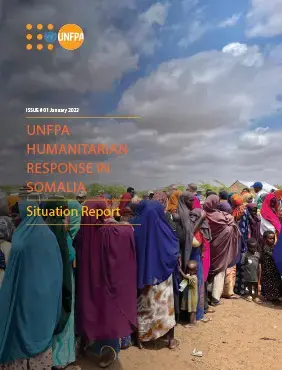Somalia is facing a climate emergency that is destroying the lives and livelihoods of millions of people. The forecast shows a fifth consecutive below-average rainy season for 2023, which has resulted in the longest drought the country has witnessed in more than 40 years. According to the UNHCR-led Protection and Return Monitoring Network (PRMN), the catastrophic drought has displaced more than 1.4 million people since 2021. Thousands of Somalis have also fled to neighboring countries to seek assistance. Many people have lost their livelihoods, and their coping capacities have been stretched.
The situation is further compounded by persistent insecurity and armed conflict, soaring food prices, and extreme poverty. These multiple shocks have exacerbated protection risks and pre-existing inequities. According to the Integrated Food Security Classification (IPC) analysis, the projected famine in Baidoa and Buur Hakaba districts between October and December 2022 was averted, but there is a strong possibility of famine between April and June 2023 if the next rainy season fails and if humanitarian assistance is not sustained. Over 8.3 million Somalis are expected to face a crisis level (IPC Phase 3) of acute food insecurity by June 2023, including 727,000 facing catastrophic levels of extreme hunger (IPC Phase 5).
UNFPA Somalia continues to prioritize the continuity of essential and life-saving SRH and GBV services during humanitarian crises, targeting vulnerable women and girls, Internally Displaced Persons (IDPs), and persons with disabilities. In January 2023, UNFPA and its partners reached 30,584 persons with SRH services and 17,801 persons with prevention and response to GBV, including Mental Health and Psychosocial Support (MHPSS) for women and girls.
The capacity of UNFPA partners is further strengthened to support the delivery of SRH and GBV services and to respond to increasing needs. Health facilities and mobile clinics provide services to support maternal and newborn health, birth-spacing options, and Clinical Management of Rape (CMR). MHPSS services are offered to survivors of GBV in safe spaces for women, girls, and young people and in one-stop centers.


